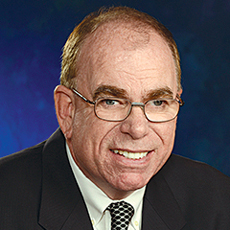
Some liken relations between long-term care operators and the government to a game of cat-and-mouse.
In this view, Uncle Sam plays the cat’s role: ever vigilant lest some cheese is misappropriated. Operators, meanwhile, are relegated to the rodent’s role: constantly trying to outwit a dangerous adversary in a desperate attempt to postpone starvation.
It’s not hard to see why this comparison has gained traction. But I think the relationship tends to play out more like a game of chess. The combatants have various pieces at their disposal, which they regularly use to attack and counterattack.
The government’s most powerful piece, obviously, is money. This they can funnel through the Medicare and Medicaid programs in amounts and with conditions as deemed appropriate.
The most lethal piece in the nursing home industry’s arsenal? Ironically, it’s not the field’s considerable lobbying power. It’s the residents. To be more precise, it’s the industry’s willingness to serve those residents.
Remove that linchpin and the government faces a challenge of epic proportions. After all, if nursing homes depart, where would those hundreds of thousands of people requiring care go? Both sides understand this unspoken threat, and in a way it is the industry’s ultimate trump card. Or, at least it was.
As for what’s changed, or at least changing? Well, that was made abundantly clear last Thursday, during a webinar hosted by Yale University’s Solomon Center for Health Law and Policy.
While the usual back and forth about the need for more money and/or accountability in skilled care took center court, we also heard calls for changes in the way the game gets played. Or more to the point, in who could play it. Several speakers talked not just about a growing role for home care, but a redirection of public funds away from skilled care for this explicit purpose.
Now, many will claim there is simply no way home care operators can deliver the same level of care as a skilled care facility. That may be true, but it becomes less true with each passing day.
For in case you haven’t noticed, the home care sector has greatly stepped up its post-acute game. And let’s not forget that it wasn’t long ago skilled care operators were throwing the same shade at assisted living.
The home care sector is willing, if not yet completely able, to become a core post-acute option. It also has two trump cards of its own: the potential to reduce caregiving costs, and overwhelming public support.
Let’s fast forward to a hypothetical conversation that may be much closer than many realize:
Skilled care operators: We are very unhappy with allocated payments and new rules we find oppressive. Fix both to our liking, or many of our members might have to close.
Government response: Your members are unhappy? Please remind them to shut the door on the way out.
Okay, I admit it, operators and government officials do not speak like angry robots. But the sentiment is captured.
So what might home care’s intrusion mean for skilled care? The end of the road? Not exactly.
But it surely means skilled care operators must find a new and better story. Believe me, the demands we heard Thursday were not idle threats. Given even a modicum of care and feeding, home care could become a real game changer.
John O’Connor is Editorial Director for McKnight’s .




